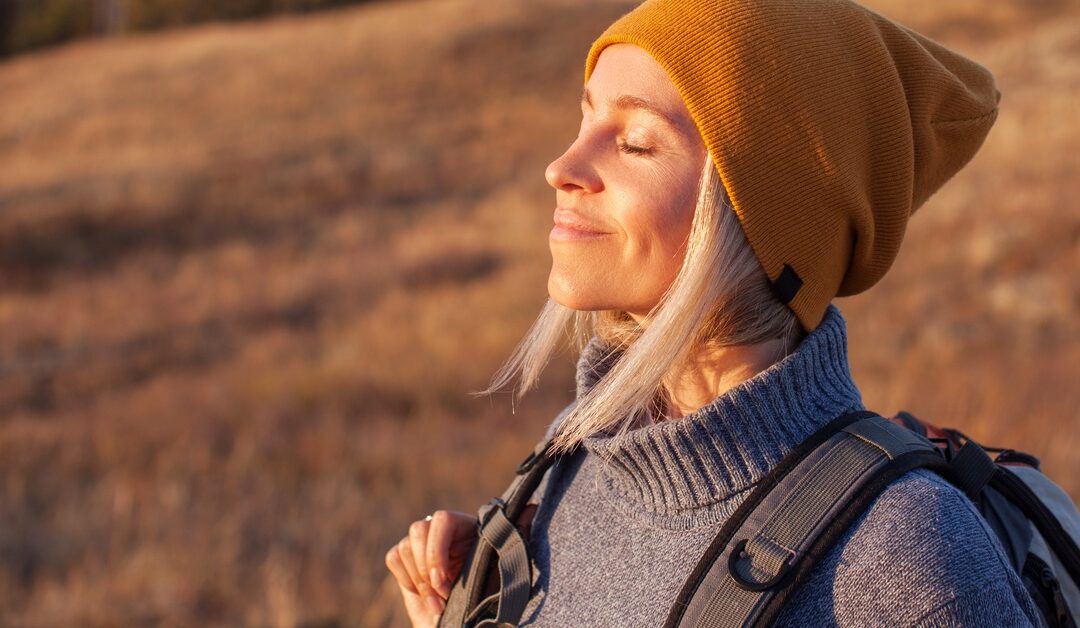Anxiety causes persistent worry, restlessness, and overwhelming fear that disrupts daily life. Cognitive behavioral therapy and medication are helpful treatment methods, but there’s one complementary approach that requires no prescription.
There are several benefits of nature and outdoor activities for anxiety that extend beyond relaxation. Spending time outdoors reduces cortisol levels, boosts mood-regulating neurotransmitters, and provides the physical activity needed to combat anxious thoughts.
The Science Behind Nature’s Healing Power
Natural settings activate the parasympathetic nervous system, which counteracts the fight-or-flight response that characterizes anxiety disorders. The soft fascination of watching clouds drift or listening to flowing water allows one’s attention to rest and recover from the mental fatigue that amplifies anxious thoughts.
Green spaces provide what researchers call restorative environments. The locations promote psychological restoration through four key elements: being away from stressful stimuli, fascination with natural phenomena, compatibility with personal inclinations, and immersion in the environment.

How Outdoor Activities Combat Anxiety Symptoms
Stress Reduction Through Cortisol Regulation
Outdoor activities directly impact stress hormones that fuel anxiety. Cortisol, the primary stress hormone, decreases measurably after spending only half-an-hour in natural settings. The reduction of cortisol occurs regardless of whether people exercise or simply sit quietly outdoors.
Walking in parks or forests triggers additional cortisol reduction compared to urban environments. The combination of natural sights, sounds, and smells creates a multi-sensory experience that signals safety to our nervous system. Fresh air contains negative ions that may increase serotonin levels, contributing to improved mood and reduced anxiety.
Mood Enhancement and Neurotransmitter Balance
Sunlight exposure during outdoor activities stimulates vitamin D production and regulates circadian rhythms, both crucial for mood stability. Natural light also triggers serotonin release, the neurotransmitter that promotes feelings of wellbeing and calm. Morning sunlight exposure particularly helps reset sleep-wake cycles disrupted by anxiety.
Physical movement outdoors provides additional mood benefits. Exercise releases endorphins while reducing inflammatory markers associated with anxiety disorders. The rhythmic nature of walking, hiking, or cycling creates meditative states that interrupt anxious thought patterns.
Improved Focus and Mental Clarity
Nature experiences restore what psychologists call directed attention capacity. It’s the mind’s ability to concentrate and make decisions. Urban environments constantly demand focused attention through traffic, noise, and visual complexity. Natural settings provide soft fascination that allows attention to recover without effort.
Attention restoration translates into improved ability to manage anxious thoughts. When cognitive resources decline, anxiety symptoms worsen because individuals lack mental energy to challenge catastrophic thinking or implement coping strategies. Time in nature replenishes these resources, making anxiety management techniques more effective.
Physical Health Benefits That Support Mental Wellness
Outdoor activities address anxiety through physical pathways as well as psychological ones. Regular exposure to natural light regulates melatonin production, improving sleep quality. Poor sleep greatly worsens anxiety symptoms; it forms a cycle where anxiety disrupts sleep and sleep deprivation increases anxiety.
Vitamin D synthesis during outdoor activities supports immune function and may influence neurotransmitter production. Vitamin D deficiency correlates with higher anxiety rates, though researchers continue studying the exact mechanisms involved.
Fresh air and deeper breathing patterns outdoors activate the vagus nerve, which triggers relaxation responses. Many people with anxiety develop shallow breathing habits that perpetuate physiological stress. Natural environments encourage slower, deeper breathing that counteracts these patterns.
Accessible Nature Activities for Anxiety Relief
Low-Intensity Options
Simple nature exposure provides anxiety relief without requiring athletic ability or equipment. Sitting in a garden, park, or under trees offers measurable stress reduction. Reading outdoors combines the benefits of nature exposure with engaging activities that redirect attention from anxious thoughts.
Gardening activities like planting, weeding, or watering create mindful engagement with natural processes. The repetitive motions and focus on plant care interrupt rumination while providing sensory experiences through soil texture, plant fragrances, and visual beauty.

Moderate Activity Choices
Walking remains the most accessible form of nature-based anxiety relief. Forest walks, beach strolls, or neighborhood park circuits require minimal equipment while providing cardiovascular benefits. Walking meditation combines movement with mindfulness practices specifically designed for anxiety management.
Bird watching encourages present-moment awareness while providing gentle fascination. The attention required to spot and identify birds naturally interrupts anxious thought loops. Water activities like fishing or lakeside sitting leverage the calming effects of moving water sounds.
Adventure-Based Activities
For those seeking more intensive nature engagement, hiking, camping, and outdoor sports provide extended nature immersion. Multiday camping experiences particularly benefit anxiety sufferers by removing digital distractions and creating sustained contact with natural rhythms.
Rock climbing, kayaking, and mountain biking require focused attention that makes anxious rumination impossible. These activities also build confidence and self-efficacy. These are important factors in long-term anxiety recovery.
Practical Tips for Daily Nature Integration
Urban Solutions
City dwellers can access nature benefits through creative approaches. Rooftop gardens, balcony plants, or indoor nature sounds provide some benefits when there’s limited outdoor access. Walking to work through parks instead of busy streets increases daily nature exposure.
Creating window views of trees or sky, eating lunch outdoors, and scheduling walking meetings move daily activities into natural settings. Even brief nature breaks during work hours provide measurable stress relief.
Seasonal Adaptations
Each season offers unique anxiety relief opportunities. Spring gardening activities coincide with increased daylight that combats seasonal depression often accompanying anxiety. Summer activities like outdoor swimming or evening walks extend beneficial daylight exposure.
Fall leaf viewing and winter activities like snowshoeing maintain nature connection year-round. Seasonal adaptation prevents the isolation that worsens anxiety during challenging weather months.
Building Consistency
Regular nature exposure provides cumulative benefits for anxiety management. Short daily walks prove more beneficial than occasional long hikes. Creating nature routines like morning coffee on the porch or evening garden time builds sustainable habits.
Weather shouldn’t prevent nature connection entirely. Light rain walks, snow activities, and covered outdoor spaces maintain consistency while providing varied sensory experiences that prevent habituation.
Treat Your Anxiety With Professional Guidance
If you want to ease your anxiety and reap the benefits of incorporating outdoor activities into your routine, Envision Mindcare provides anxiety treatment in Fort Lauderdale. Our team of psychiatrists are ready to provide support.
We know how to integrate nature-based strategies with evidence-based therapies to create comprehensive, personalized treatment plans. Our psychiatrists can help you develop personalized routines that incorporate outdoor activities. Contact Envision Mindcare today to find the guidance you need to reclaim your mental wellness.

